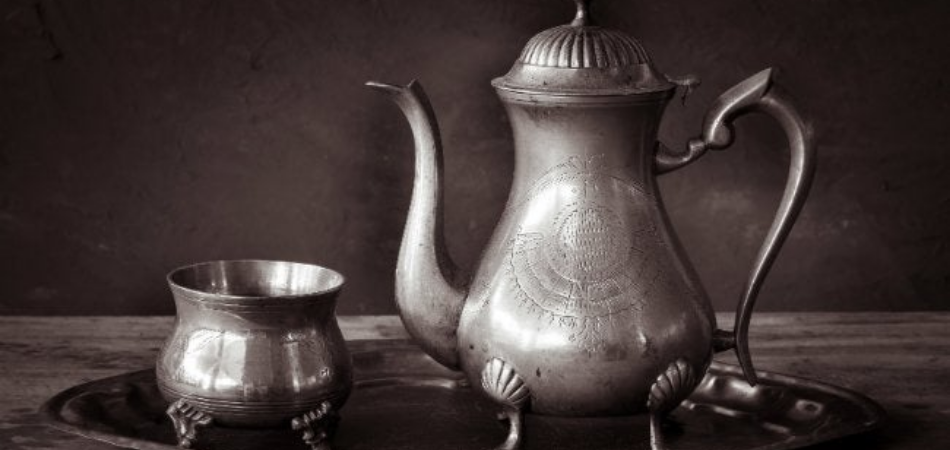If you are not familiar with the world of metals, it can be hard to know exactly how to care for your new pewter pieces. But by following a few simple tips, you can expect your pewter products to last a lifetime and look great the entire time. However, does pewter rust?
No, Pewter does NOT rust. Most pewter is alloyed with elements such as copper and lead, which offer tarnish resistance. The more copper in an alloy (Britannia metal), the better it will resist tarnishing.
Also, Pewter can lose its appearance over time due to improper handling and lack of proper maintenance. Once the pewter begins to lose its appearance, it can be restored and the only remedy is to clean and polish the surface. To prevent this from happening, proper care must be taken to protect it.
Also, Cleaning methods vary depending on the type of finish on the particular piece. Therefore, it is important you know the right way to clean. And below, you will find more information on this, especially on the way to protect and prevent your pewter from destruction.
Contents
What Is Pewter And What Is It Made Of?
Pewter is a malleable grey alloy consisting mostly of tin. It also contains other metals such as antimony, copper, bismuth, silver and sometimes lead.
Pewter is an alloy metal. An alloyed metal is made by combining two or more metallic elements, so as to give more strength and resistance to corrosion.
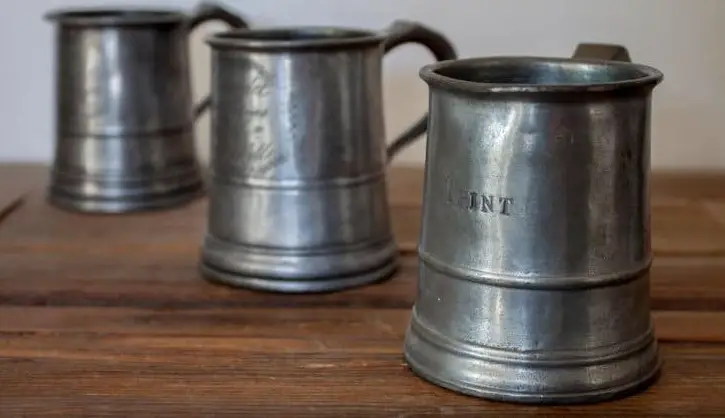
Pewter is made up of tin, antimony and copper, mostly. These metals are combined in such a way that not only strength is enhanced but resistance to corrosion, tarnish, oxidation and rust.
Tin takes the largest percent of the content of pewter, taking about 91%. This is followed by antimony, which takes about 7.5%, and then copper of 1.5%.
These constituents of Pewter make it safe for use in making utensils. It also makes it possible for pewter to be bent and constructed into different shapes and forms. But that’s not the point. The presence of antimony in pewter makes it resistant to acid attacks.
Copper and antimony enhance the durability of pewter, while tin, which is ordinarily used for plating steel canes, forms the greater percentage of the content of Pewter. This is why the tinge of tin emerges to make pewter material shine over a long period of time.
Unlike silver and some coated materials like stainless, the resistance that pewter gives to corrosion or rust does not depend on the layer or thin surface coatings. The combining metals darken and shine as pewter is used over time. This gives it a brighter and tougher resistance to scratches and even dents.
Pewter exists in different grades and types. These grades depend on the kind of material with which it is built. The higher grades of pewter are made up of copper, together with antimony for their hardening effects, while the lower grades are made of lead.
The use of lead in making pewter, however, especially for utensils, is not advisable and no longer popular. This is because lead contains toxins that are capable of harming the body. The lower grade of Pewter is more susceptible to rust than the higher grade.
Advantages Of Pewter
Behind gold, platinum and silver, pewter comes fourth in number as the most used or commonest metal used for making jewelry. You might be wondering why the popularity and common use of pewter. Below are some of the reasons.
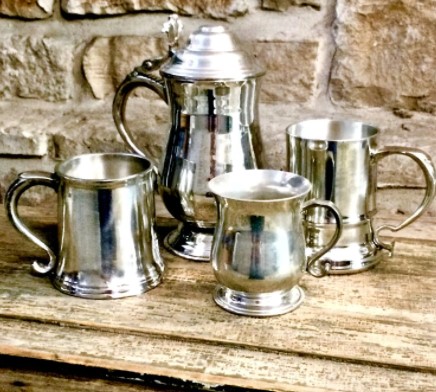
Resilience against rust:
One of the major advantages of Pewter is its resistance to rust and tarnish. The presence of antimony and other metals which form the alloy make Pewter’s resistance to rust and oxidation very high. Even though some metals like silver may be more expensive, pewter maintains better durability and resistance to rust.
Pewter is affordable:
compared to other precious metals such as gold, silver and diamond which are equally used for making jewelry, pewter is less expensive and still gives off the same beautiful color and, sometimes, even more beautiful than the costlier metals.
Pewter is malleable:
pewter is very soft, compared with other metals, and very easy to bend into other shapes. This means that more materials and shapes can be made out of Pewter at a lesser cost than other metals. Pewter is ductile, which means it will not break while being hammered into different shapes.
Pewter is durable:
Pewter can last for a very long time without rust, oxidation, tarnish and dent. When properly maintained, pewter gives off dark shines as it gets used over time. This is why it is very popular for use in making jewelry and utensils
Pewter is cost effective in maintenance:
Pewter takes little or nothing to maintain. Sometimes, it only takes just ordinary washing or dusting, and, very rarely, polishing to maintain them.
How To Care For Your Pewter
Aside from your jewelry, Pewter is used in making most kitchen utensils. What this means is that you are more likely to interact and use pewter in your daily activities, either as jewelry or utensils, than other metals.
Therefore, if you needed to know anything about such commonly used materials or metal, it would be how to handle it and what you need to do to prevent it from rusting or even a similar damage.
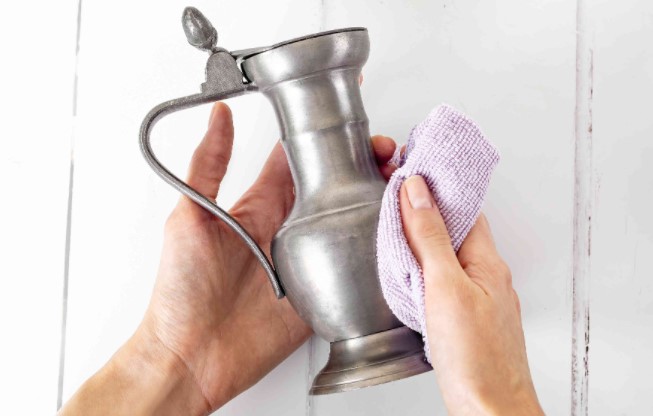
How Do Keep Your Pewter From Tarnish And Oxidation?
There are many ways to maintain and keep your Pewter from tarnish and oxidation. Pewter can be cleansed, washed, rinsed and polished.
Polishing is usually the last process in cleaning pewter. For silver and polished Pewter, polishing is a regular requirement. Before polishing, however, you need to first wash the pewter in warm and soapy water, then use spongy material to remove or scrub the parts carefully. Once this is done, use a soft towel to dry the parts and get it ready for polishing.
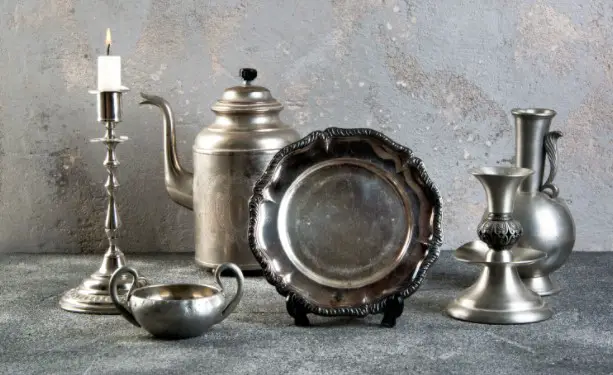
The linseed recipe is used to polish Pewter. The linseed is boiled in a saucepan and mixed with rottenstone so that it turns into a paste. Apply the paste on the Pewter usiya polishing towel. For antique or oxidized Pewter, washing with clean water and soap is enough, since it is already dark coloured.
Conclusion
In this article, I have answered the question regarding whether Pewter can rust. Once, again, Pewter may tarnish and suffer oxidation but does not rust, especially when taken care of.
Pewter is a special alloy metal, malleable, ductile, affordable, easy to maintain and loved most importantly because of its durability and resistance to rust.

